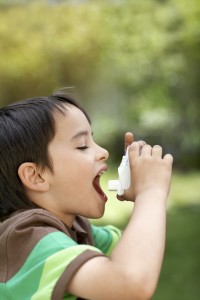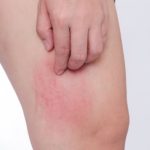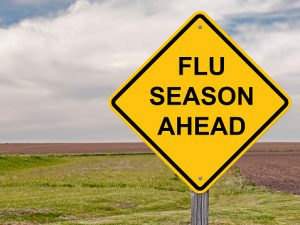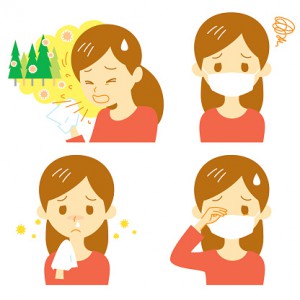The most common form of asthma is caused by an allergic reaction. More than fifty percent of people who suffer from asthma have this type of disease. Asthma is an airway obstruction caused by inflammation and is a reaction that people have when they are exposed to substances that they are allergic to. Some of the offending substances are pet dander, pollen, dust mites, mold, and some foods. An asthma attack has three components:
• The bands of muscles surrounding the airways in the lungs tighten. This is called bronchospasm.
• The lining of the airways becomes inflamed and swollen.
• There is an increase in mucous production in the lining of the airway.
All of these factors make it harder for air to pass through the lungs, and breathing becomes difficult.
Treatment for allergy-induced asthma requires testing to see what a person is allergic to. Once these allergens have been identified the patient will be advised to avoid them. There is no cure for asthma but, there are several medications available that can help control it. Antihistamines are often administered, which help reduce the allergic reaction.
A physician may prescribe corticosteroids to reduce the inflammation of the airway and make breathing easier. Some medications are given for immediate relief of symptoms. Such as bronchodilators which are inhaled as needed to help to relax the airways.
Other medications are used for long-term control of symptoms and are taken on a daily basis. Speak to your physician if you experience difficulty breathing after coming in contact with certain substances. There are different treatment options available and you want to learn about the one that will be best for you. You can also schedule an appointment with a pulmonologist at Flushing Hospital by calling 718-670-5486.
All content of this newsletter is intended for general information purposes only and is not intended or implied to be a substitute for professional medical advice, diagnosis or treatment. Please consult a medical professional before adopting any of the suggestions on this page. You must never disregard professional medical advice or delay seeking medical treatment based upon any content of this newsletter. PROMPTLY CONSULT YOUR PHYSICIAN OR CALL 911 IF YOU BELIEVE YOU HAVE A MEDICAL EMERGENCY.









 immune system is what really causes allergic reactions. Grass and tree pollen’s, ragweed, dust- it mistakes these harmless allergens for a serious threat and attacks them. The sneezing, watery eyes or coughing are the result of your body mistakenly attacking itself.It begins with exposure to the allergen. Even if you’ve inhaled an allergen many times before with no trouble, at some point, the body flags it as an invader. The immune system studies the allergen and readies itself for the next exposure by developing antibodies; you are now “sensitized” to the allergen.
immune system is what really causes allergic reactions. Grass and tree pollen’s, ragweed, dust- it mistakes these harmless allergens for a serious threat and attacks them. The sneezing, watery eyes or coughing are the result of your body mistakenly attacking itself.It begins with exposure to the allergen. Even if you’ve inhaled an allergen many times before with no trouble, at some point, the body flags it as an invader. The immune system studies the allergen and readies itself for the next exposure by developing antibodies; you are now “sensitized” to the allergen.